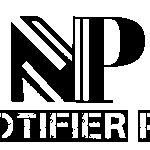In a major move to strengthen childhood cancer care, Pakistan has become the second country in the Eastern Mediterranean Region to join the Global Platform for Access to Childhood Cancer Medicines. The initiative, led by the World Health Organization (WHO) and St. Jude Children’s Research Hospital, aims to bridge the treatment gap and raise national survival rates for children with cancer.
The agreement was officially signed between Federal Health Minister Syed Mustafa Kamal and WHO Representative in Pakistan Dr. Dapeng Luo. It will remain valid until December 31, 2027, with provisions for extension through mutual consent. According to the deal, over 8,000 children in Pakistan—diagnosed with cancer every year—will receive quality-assured cancer medicines free of cost.
Calling the moment “historic,” Minister Kamal said,
“Today is a significant day for Pakistan. Through this agreement, we will secure essential medicines for children battling cancer. We are grateful to WHO, UNICEF, the Global Platform, and all our partners. If even one child’s life is saved through this collaboration, we are saving humanity.”
Currently, only 30% of children with cancer in Pakistan survive, primarily due to limited access to diagnosis and treatment. By joining the global platform, Pakistan aims to double the survival rate to 60% by 2030, aligning with international targets. In contrast, survival rates in high-income countries often exceed 80%, mainly due to early detection and better access to effective therapies. (St. Jude WHO Global Platform)
The Global Platform, launched in 2021, ensures a steady, reliable supply of certified and cost-free cancer medicines to low- and middle-income countries. In this collaboration, UNICEF will manage the procurement and delivery of cancer medicines to Pakistan, ensuring that children across all provinces can benefit.
Beyond medicine delivery, WHO will continue to support Pakistan’s federal and provincial health departments with critical technical assistance, capacity building, and operational support. The plan includes strengthening cancer registries, improving diagnostic tools, and developing clinical treatment guidelines tailored to the country’s needs.
Pakistan’s inclusion in this platform also reflects a growing recognition of childhood cancer as a priority public health issue. Experts emphasize that treatment for childhood cancers—especially leukemia, lymphomas, and Wilms tumors—can be highly effective if diagnosed and treated early.
Moreover, the collaboration fits into the broader goals of the WHO Global Initiative for Childhood Cancer, which aims to achieve at least 60% survival globally by 2030 while reducing suffering for all children with cancer. (WHO Official Page)
Dr. Dapeng Luo lauded Pakistan’s commitment to child health and highlighted the importance of sustainable access to treatment. He assured that WHO would stand with Pakistan at every step, providing support not just in supply chains but also in long-term health infrastructure improvements.
This partnership comes at a critical time. In Pakistan, late diagnosis, financial barriers, and lack of specialized oncology services have long plagued families of cancer patients. With this new program, the government hopes to ease the burden on thousands of families who previously had to seek expensive treatments or travel abroad for proper care.
The program is also expected to reduce child mortality rates and create a ripple effect in improving pediatric healthcare standards nationwide. Minister Kamal concluded his remarks by reaffirming that this initiative is not just about medicine, but about giving every child in Pakistan a fighting chance to live.





